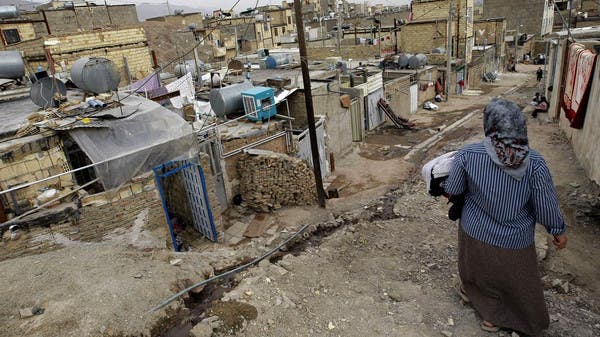Nowruz and the Iranian people’s dreams of happiness
https://arab.news/4m5rz

Nationalist Persians like to say that their forefathers always considered happiness a gift from God, with Nowruz — the Persian New Year — one way of attaining it. This is, of course, similar to the heritage of other nations across the world. Regardless of the acclaimed mythical benefits of Nowruz, we should ask, in the present climate in particular, have the Iranian people attained happiness this year? We can extend this question and ask have the Iranian people experienced real happiness at all since the 1979 Islamic Revolution?
In the past four decades, and especially in recent years, Iran has been living in isolation from its neighbors; a situation that has clearly adversely affected the Iranian people. How happy can they be, knowing that their country is isolated and experiencing hostile relations with other countries due to issues that have nothing to do with them?
The Iranian people cannot be blamed for this sad state of affairs. The regime in Tehran is directly to blame, as its actions have steadily tightened the noose around the necks of its people — financially, socially and politically.
What space is there for happiness to grow and thrive for the vast majority of Iranians amid a climate of isolation, rampant poverty and brutal repression that affects every aspect of life in Iran?
As a result of increasing poverty, which is the outcome of massive regime corruption, several socially destructive phenomena have grown and spiraled out of control, such as homelessness, with thousands living on the streets and even in graveyards, while drug addiction and child marriage are also common. Poverty, which is clearly visible even in the national capital, Tehran, is not restricted to a minority, with half of the Iranian population now living below the poverty line.
How can Iranians be expected to attain happiness when they know that their country sponsors global terrorism? This has led to many other nations imposing restrictions on their movement, with Iranians finding it difficult to travel for study, work, business and tourism in the region and beyond.
How can Iranians be expected to feel like celebrating Nowruz when they see first-hand exactly how the regime has hidden the number of deaths and infections resulting from the coronavirus outbreak for political reasons? The regime is so desperate to avert any blame that it claims the virus is a US conspiracy, the result of collusion among enemy intelligence services and evil spirits to target Iran and the so-called Islamic Republic’s regime.
If Nowruz symbolizes a vibrant new beginning, bidding farewell to the lifeless, cold winter, the melting of the snow, the return to the positivity of life and growth, the warmth of spring and the blossoming of flowers, what signs of hope, growth and positivity can the Iranian people look to in order to lift their spirits this new year? Can they truly claim to have seen any change for the better during the last year in all spheres of their lives?
Have the heavy chains that have shackled the Iranian people for decades been lifted? Have they seen Iran opening up to the world, let alone to their neighboring countries, or experienced the freedom to travel between countries as is the case with citizens of other countries not branded as sponsors of terrorism?
Previously, the Iranian people pinned their hopes on the 2015 nuclear deal. However, these hopes were quickly dashed as the US withdrew from the agreement over the regime’s policies. The Iranian people had dreamed, throughout the negotiations between the regime and the Western powers, that the deal would improve their living conditions, reduce prices and bring down inflation and unemployment levels. They woke up, however, to find nothing but disillusionment.
The Iranian people, engulfed by worries and isolation, are fervently hoping that this Nowruz will be the beginning of a year that will be better than the preceding one. Their hopes, however, are balanced with pragmatism. They ask themselves: “Why should this year be different from other years when there are no indications of genuine change either at home or abroad?”
The regime’s actions have steadily tightened the noose around the necks of its people — financially, socially and politically.
Dr. Mohammed Al-Sulami
We in the Arab countries neighboring Iran wish prosperity, happiness, welfare and good living standards for the Iranian people. We also hope they will be able to escape the evil and terrorism unleashed by the regime domestically, regionally and internationally, as well as the economic hardship and misfortune that they face.
Despite the fact that Arab countries also bear the brunt of the recklessness, sectarianism and murderous policies of Iran’s Velayat Al-Faqih regime in Iraq, Syria, Lebanon, Yemen and other areas, we pray that the Iranian people will achieve happiness and that Iran and the region will ultimately attain peace and security. We just need to know when this might happen.
- Dr. Mohammed Al-Sulami is Head of the International Institute for Iranian Studies (Rasanah). Twitter: @mohalsulami









































